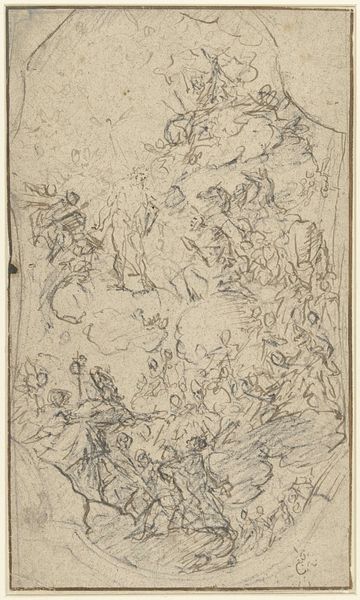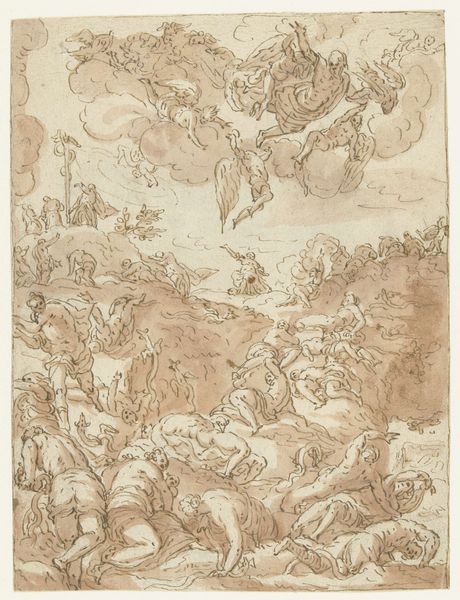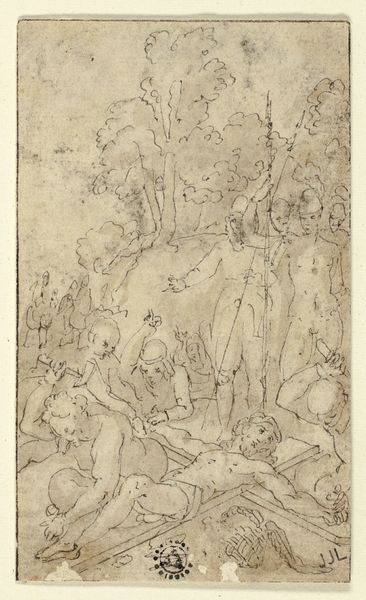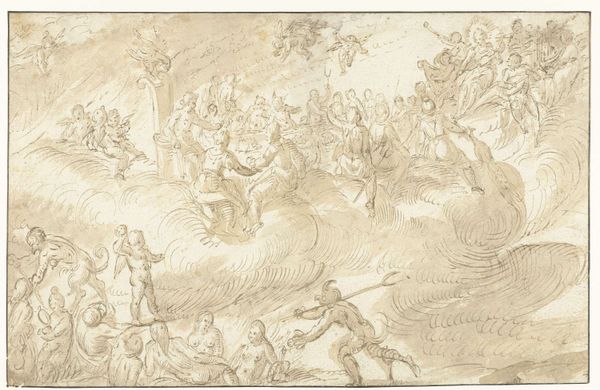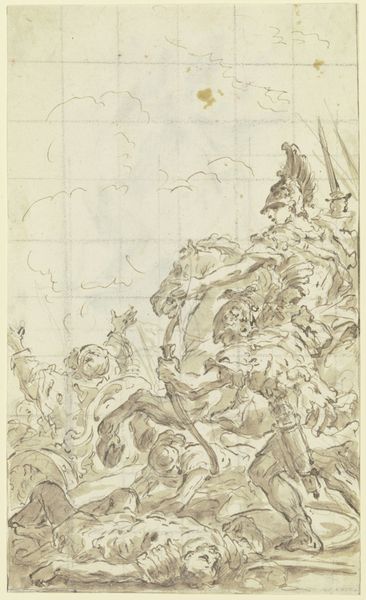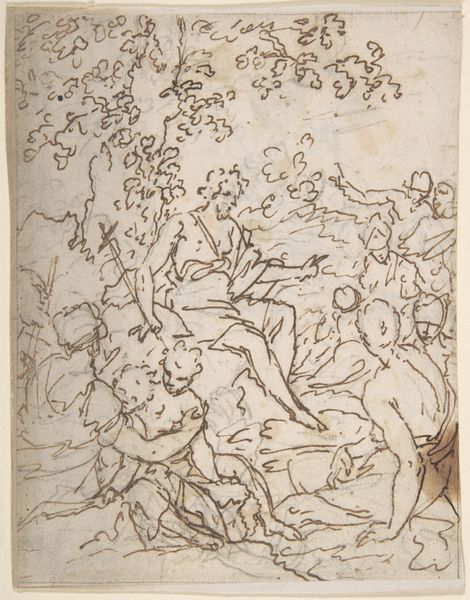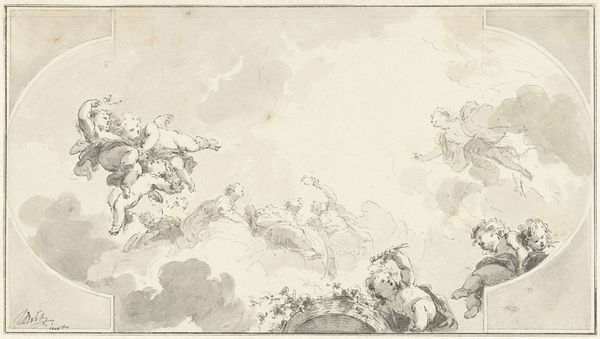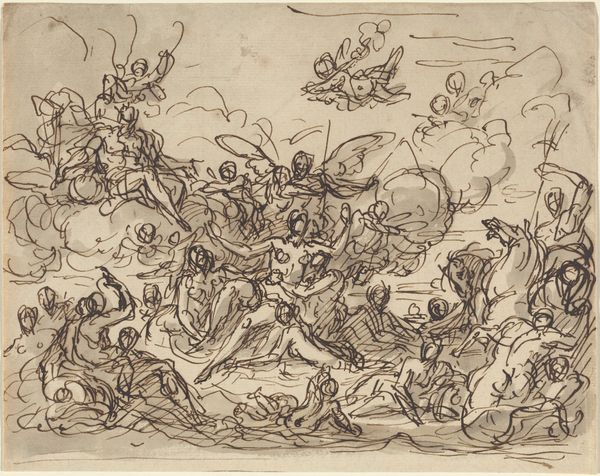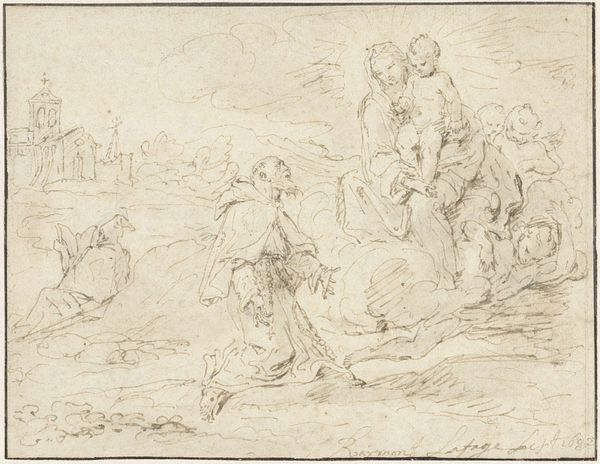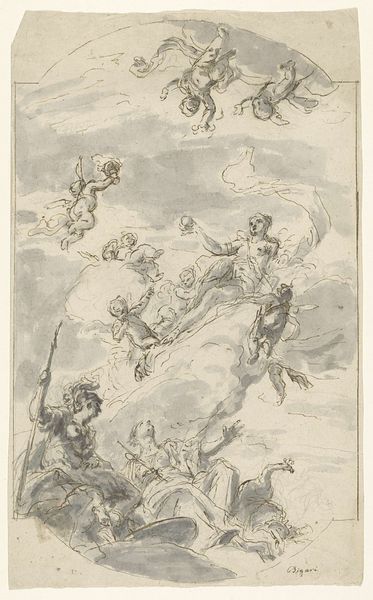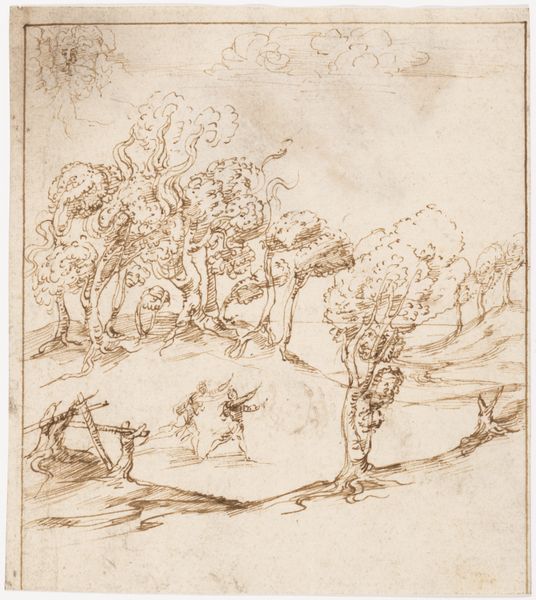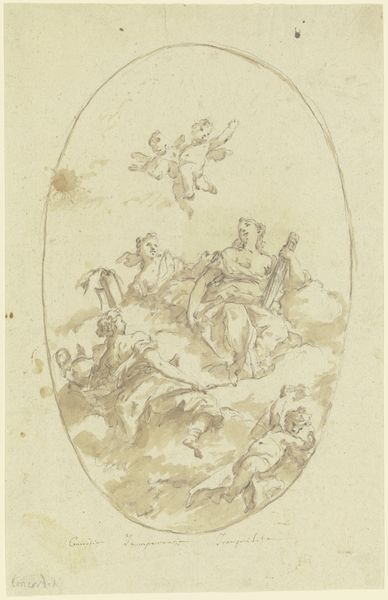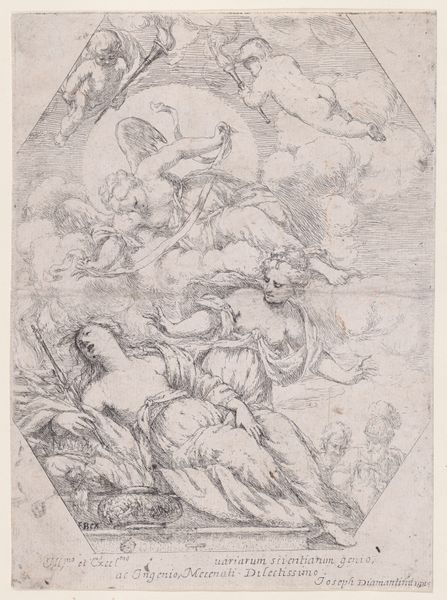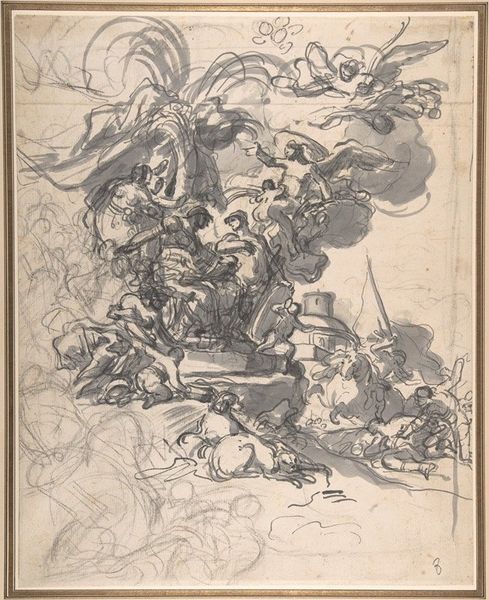
drawing, pen
#
drawing
#
allegory
#
baroque
#
pen drawing
#
pen sketch
#
figuration
#
11_renaissance
#
pen
Dimensions: height 405 mm, width 260 mm
Copyright: Rijks Museum: Open Domain
Editor: This pen drawing by Charles-Joseph Natoire, "Studies van putti en rechtsonder H. Joris of Perseus," made sometime between 1710 and 1777, feels like a flurry of ideas, almost like a dreamscape of cherubic figures. What do you see in this piece, from a historical perspective? Curator: I see a reflection of the baroque period's emphasis on dynamic movement and religious allegories, interwoven with the social function of art. Note how the composition, seemingly chaotic at first glance, utilizes the putti and Saint George or Perseus not just as aesthetic elements, but as embodiments of virtue and heroism which served to instruct and inspire viewers, particularly within the context of the Church. Consider who had access to these images. Did preparatory drawings like these influence social beliefs or political ideologies in any way? Editor: That’s fascinating! So, the intended audience, perhaps wealthy patrons or members of the clergy, would've immediately recognized the symbolism? And how would that influence the public role of art at that time? Curator: Precisely. The visual language—the allegories—promoted specific values, reinforcing social structures. But who controlled the narrative? Were there dissenting artistic voices pushing back against the establishment's preference for religious subjects? Editor: I hadn't considered it from that perspective, the visual language being a form of control! It gives the work another layer of complexity to analyze. Curator: Absolutely. Examining the power dynamics inherent in artistic patronage and reception adds a whole new dimension. What started as an interesting pen sketch unfolds to reveal the intricate interplay of art, society, and power. Editor: It makes me think differently about how art functions as part of the broader cultural conversation. Curator: Exactly. It goes beyond the visual appeal, revealing how images play a significant role in the larger narratives that shape societies.
Comments
No comments
Be the first to comment and join the conversation on the ultimate creative platform.
